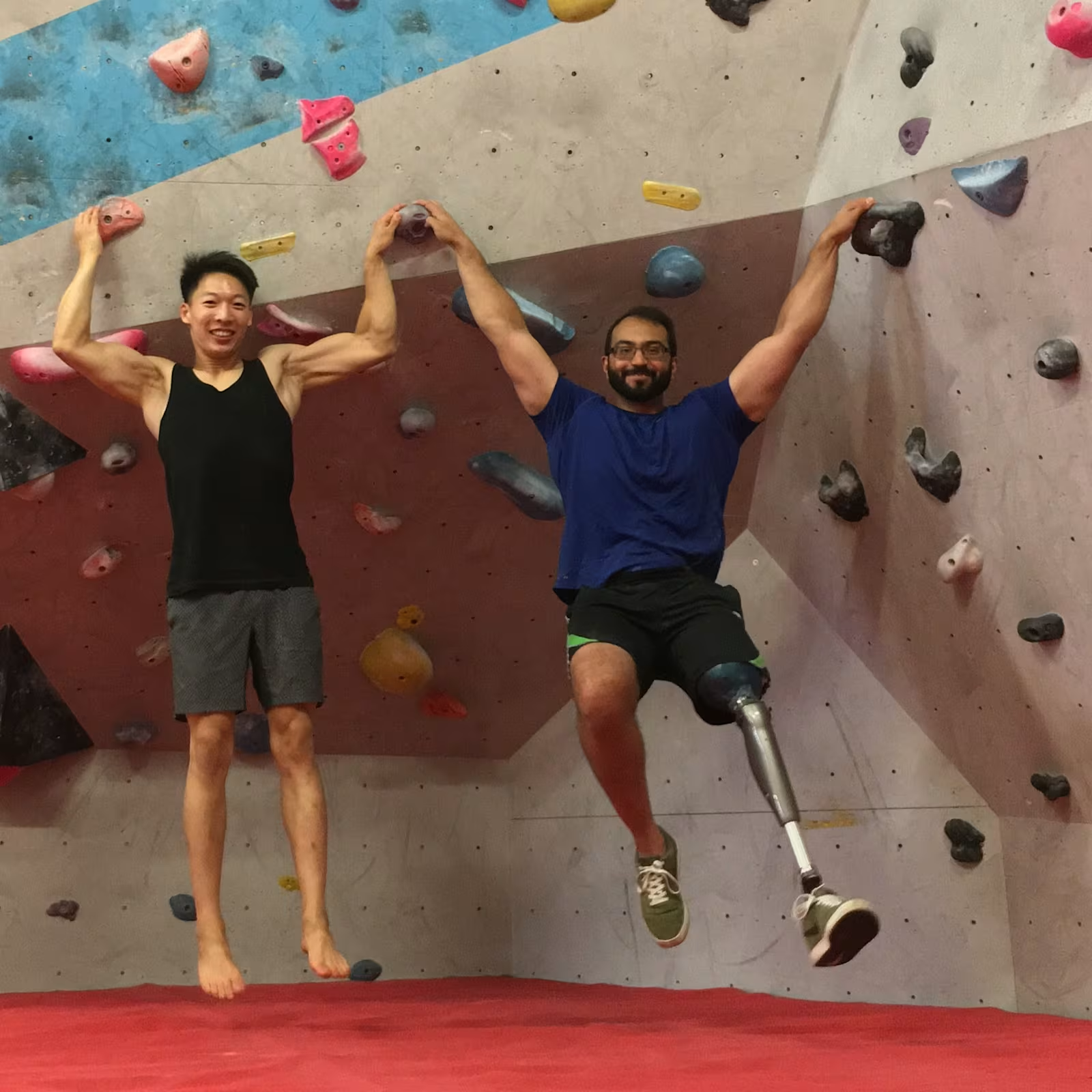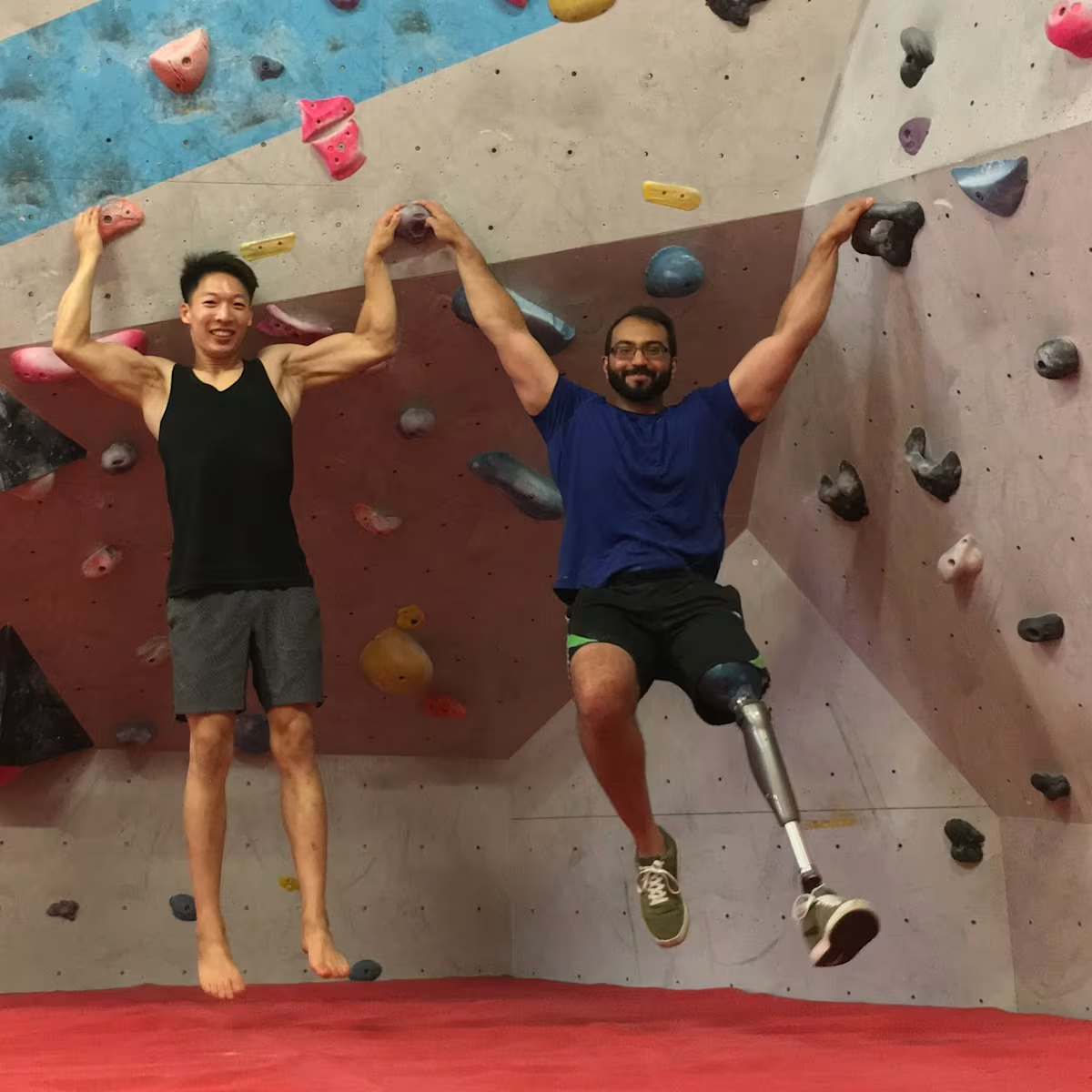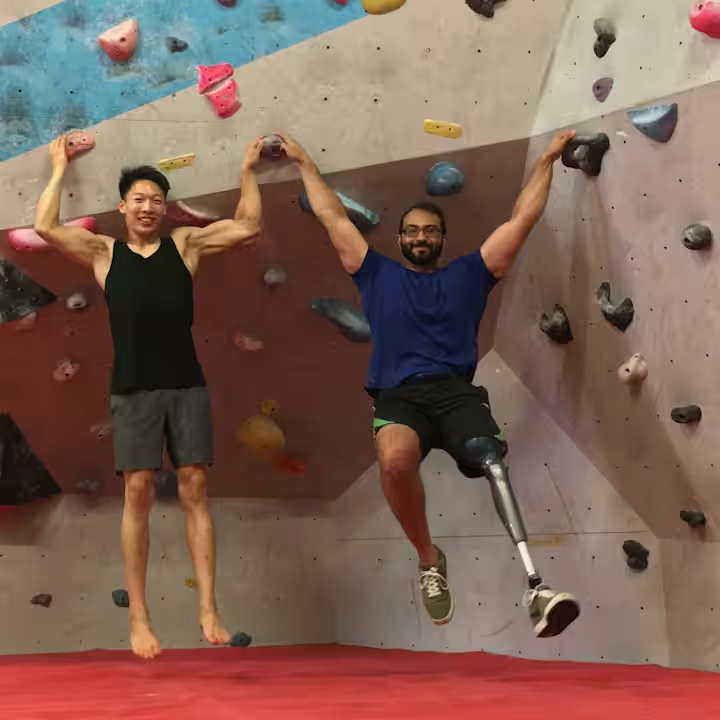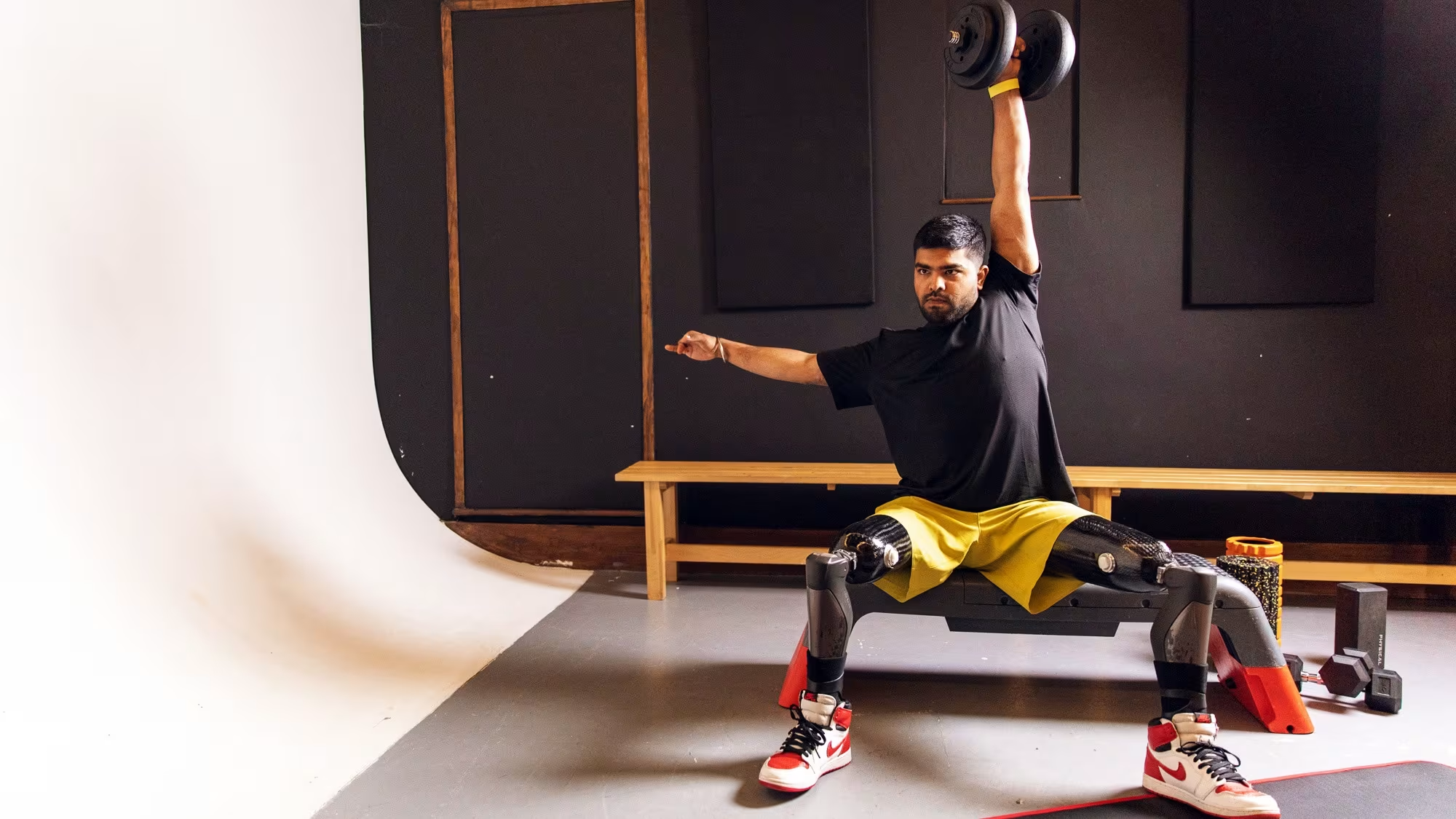


Abdullah's C-Leg Story
A rare form of cancer and a subsequent above-knee amputation has not stopped Abdullah Khan from being a man of many talents, and the C-Leg 4 has enabled him to improve his general health and wellbeing as he seeks to complete his studies and perfect his hobbies.
Abdullah, or Abs, as he likes to be known, lost his left leg around five years ago during treatment for Ewing’s Sarcoma, a rare form of cancer which occurs in the bones and/or soft tissues.
The 29-year-old, who was born in Riyadh, Saudi Arabia, and who has lived in the UK since 2001, is currently finalising his PhD studies at the University of Birmingham, where he works on gene editing to model bleeding disorders in stem cell derived cells. He’ll be moving on to a research Post Doctoral position in September.
When not in the lab or the library Abs has a range of interests, from playing guitar in a band with his university colleagues, to rock climbing with his girlfriend.
But it’s powerlifting that is his main passion and he competes regularly, including at the English and British Para Powerlifting Championships. His personal best in the bench press for his weight category is an impressive 137kgs, and is a British bronze medal winner from 2016.
“Before I got ill I used to do a lot of running and kickboxing was my real passion but when everything happened that obviously stopped,” he said. “I found myself in a position where I had a lot of time on my hands and less ability to fill that time. So it was just about filling my time with things I could do, and one of the things suggested to me to get involved with was powerlifting. I’d never lifted heavy weights before but now I love it and just do the best I can. The standard is so high for para powerlifting though!”
Abs’ world was thrown into chaos around five years ago when he began losing mobility in his left leg, getting progressively worse. A diagnosis of Ewing’s Sarcoma quickly followed and, after 18 weeks of chemotherapy, doctors decided the best course of action was to amputate his leg. But the chemotherapy wasn’t over, continuing for another three months after his operation to ensure he was cancer-free.
As well as getting healthy from his cancer treatment, Abs also had to negotiate his new life with a prosthetic leg that he got used to but was never fully comfortable with.
He said: “It always felt heavy, and I was never walking normally on it, it was more of a hobble. It just felt alien to me.”
In late 2017, however, Abs’s life was changed when his prosthetist at the West Midlands Rehabilitation Centre in Birmingham suggested he try out the Ottobock C-Leg 4, through the NHS England microprocessor knee (MPK) policy. The policy, which has been in place since 2016, is open to through-knee, above-knee and hip disarticulation amputees who meet the qualifying criteria.
The difference was almost instant.
He said: “It’s hard for me to properly put into words just what a difference it was to wear the C-Leg 4, compared to my old prosthesis. Suddenly, everything was smoother, lighter and safer. I don’t have to even consider where I’m going any more, and all the back pain and knee pain I was suffering disappeared within a few weeks. It was a revelation.
“My friends noticed the difference immediately, how much better I was moving and how my posture had improved.”
Abs is now working hard as the deadline for his 200-page thesis grows near, but when he’s finished, he’s looking forward to returning to another pastime he took for granted before his illness — cycling.
“I used to get about Birmingham all the time on my bike, so I am really thinking about trying cycling again in the near future. I’ll probably start on a stationary bike in the gym first though!”
Discover the Kenevo and C-Leg 4
Trust, evolve and thrive with Ottobock.
Ottobock has been proudly providing the C-Leg 4 to medium - highly active individuals through the NHS since 2016. More recently less active individuals or those beginning their rehabilitation journey have been fitted with the Kenevo. Our signature Microprocessor Knee (MPK), C-Leg 4 offers lower limb amputees the technology and performance to live the life they want while the Kenevo aids amputees in improving their mobility and gaining independence. Keep reading to learn more about these solutions and the process of being fitted with an MPK through NHS funding.

